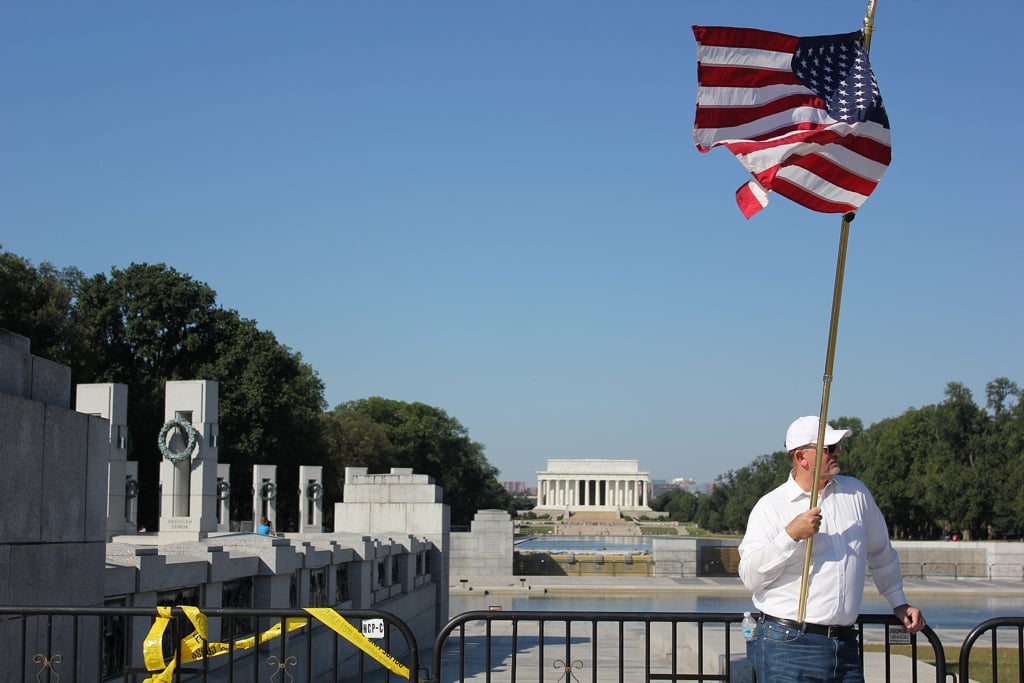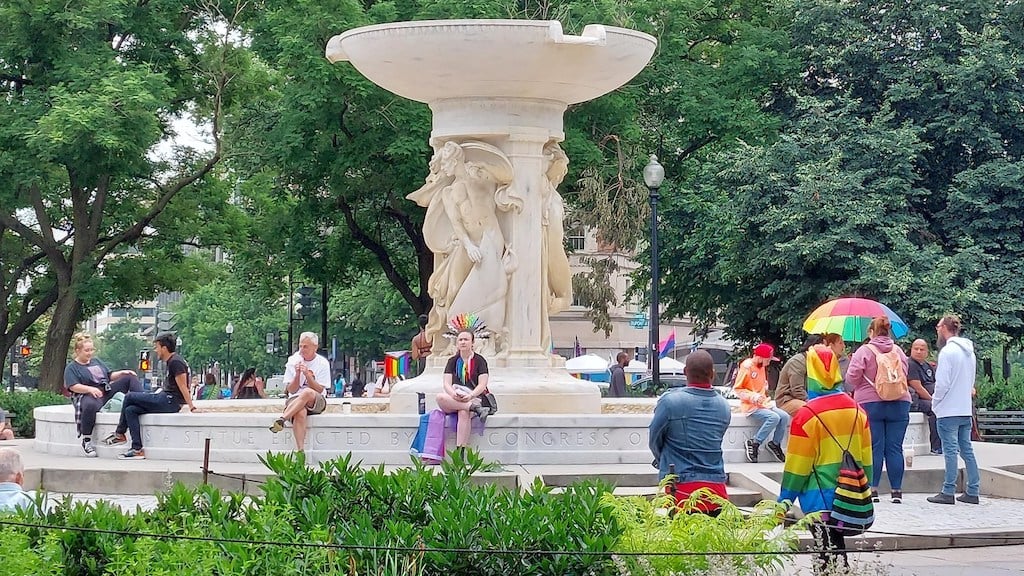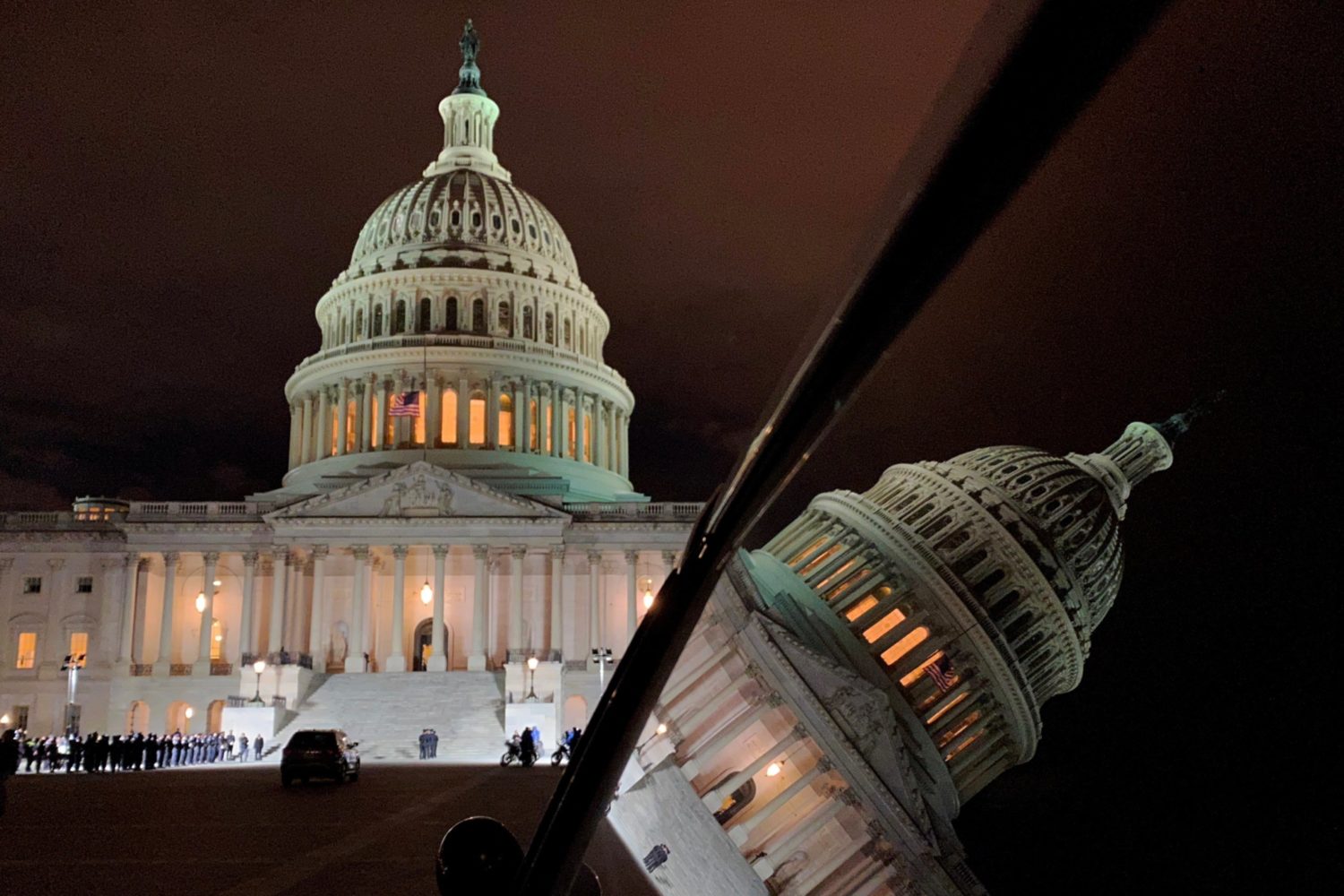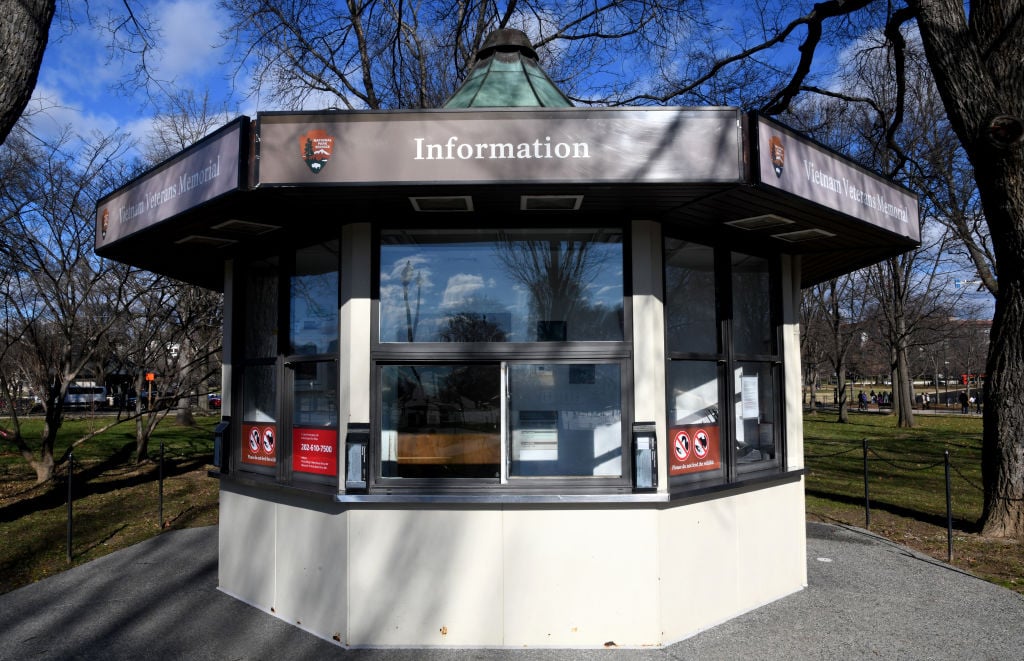The National Park Service says that even if the federal government shuts down Friday night, its facilities, including the National Mall and surrounding monuments, will remain accessible to the public. Just don’t expect a whole lot of help from people in ranger hats, information from the visitors’ centers, or relief at the restrooms.
“In the event of a shutdown, national parks will remain as accessible as possible while still following all applicable laws and procedures,” Park Service spokesman Jeremy Barnum says.
The agency’s shutdown contingency plan, revised and published Friday afternoon, states that while parks, open-air memorials, the rest of its 417 sites around the country will remain open to visitors, but that nearly all the services its staff provide will be curtailed. “Parks must notify visitors that the NPS will cease providing visitor services, including restrooms, trash collection, facilities and roads maintenance (including plowing), campground reservation and check-in/check-out services, backcountry and other permits, and public information,” the memo reads.
The Trump Administration has tried to make a point of keeping the National Park Service running—albeit in a greatly reduced capacity—if the government is forced to shut down. The previous shutdown, in October 2013, produced lasting images of the Mall cordoned off and elderly veterans trying to visit a barricaded National World War II Memorial. During a press briefing Friday, Mick Mulvaney, the head of the White House’s Office of Management and Budget, accused the Obama Administration of having “weaponized the shutdown in 2013.”
“Parks will be open this time, and they weren’t before,” Mulvaney said.
Still, the park-going experience will be far from robust, with NPS unable to provide any direct services to its visitors. (Third-party vendors who operate concessions inside parks may be able to stay on.) While those effects will be seen more severely at sites that offer hiking and camping—a bigger issue in January for parks in the Southwest than the mid-Atlantic—visitors to DC’s federally maintained landmarks will still see their experiences affected. For instance, the ten public restrooms on the Mall will be closed. Anyone who needs to relieve themselves nearby may be able to run into a federal museum over the weekend, as the Smithsonian Institution says it will have enough funds to remain open Saturday and Sunday, but come Monday, they’ll have to hold it in and scramble for the closest accommodating coffee shop.
Despite the off-putting sight of monuments locked behind guardrails, the last shutdown was not actually that restrictive in practice, according to some who had to navigate around it. “Last time the memorials were closed off a bit,” says Tim Krepp, a professional tour guide in DC. “You couldn’t go in the Lincoln Memorial, but you could walk around it. Last time rangers, would wink and nod.”
And after some cajoling and publicity, groups of World War II veterans visiting DC through the Honor Flight program were able to visit that conflict’s memorial. It’s unlikely that would’ve been much of an issue now, though; the Honor Flight Network’s next scheduled trip isn’t until March.
Meanwhile, permitted events should be allowed to go on, though their organizers won’t have access to any additional National Park Service resources. That should allow organizers of the Women’s March to go ahead with their event on the Mall Saturday, which is expected to draw about 5,500 participants. The Women’s March has ordered portable toilets through a third-party vendor, an essential move as it becomes more likely the Park Service’s facilities will be unavailable. Though it’s quite possible no one visiting the Mall for any reason will miss the public restrooms.
“Let’s be frank,” Krepp says. “Those things are shut down half the time for maintenance, and they’re not that well maintained.”




















